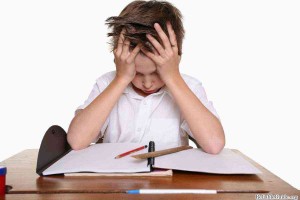
ADHD (Adolescent and Adult)
Attention-Deficit Hyperactivity Disorder (ADHD) is characterized by symptoms of impulsive behavior, emotional outbursts, hyperactivity, inattention, loss of focus, forgetfulness, and disorganization. These symptoms may be present all at once or may only appear occasionally, depending on the situation.
It is not the diagnosis that is dangerous but rather the secondary impact of not treating that can become detrimental. When kids or adults go untreated they can become despondent, lack motivation and impact self worth.
ADD VS. ADHD
The term ADD is officially recognized and renamed by the current Diagnostic and Statistical Manual of Mental Disorders (DSM-5) as ADHD. The diagnostic criteria for ADHD include three subtypes of the condition:
- Predominantly inattentive presentation. This subtype indicates more inattention and less hyperactivity. Children may sit quietly in class and appear to be working because they do not act out or have trouble getting along with others. Symptoms, which mostly come from the inattention category, may be overlooked. Few symptoms of hyperactivity-impulsivity may be present.
- Predominantly hyperactive-impulsive. Most symptoms come from the hyperactivity-impulsivity category. Inattention may still be present, but not to such an extent as hyperactivity-impulsivity.
- Combined hyperactive-impulsive and inattentive. Six or more symptoms are present from each category (inattention and hyperactivity-impulsivity). This subtype is the most common.
How Therapy Can Help ADHD
Psychotherapy is effective for the treatment of the symptoms related to ADHD because it addresses behavior modification. Children and adults with ADHD can have a difficult time regulating their emotional and behavioral response to situations.
Learning effective coping strategies is one way to gain control over symptoms.
This would include developing a plan for organization and prioritization in the key areas of difficulty for those with ADHD challenges. Goal setting, reward and consequence, and emotional regulation are other areas that are addressed during psychotherapy for ADHD.
Therapy can also help discover whether attention issues are really the root of the problem: In many cases, learning disabilities, anxiety, anger, problems at home, or other emotional or cognitive issues can be masked by a child’s misbehavior. Therapy can help uncover the true nature of the child’s inappropriate or troubling behavior.
Common therapeutic treatments for ADHD include:
- Skills-based therapy: This type of therapy is particularly effective with young children. Therapists specializing in the treatment of attention problems can focus on helping children develop specific skills and time management strategies.
- Cognitive behavioral therapy (CBT): CBT can be helpful at changing unhealthy habits and thinking patterns. Adults with ADHD may find it particularly helpful because CBT helps patients reframe and retrain their thought processes. CBT is typically a short-term intervention, with changes often apparent after only a few sessions.
- Traditional psychotherapy: Traditional psychotherapy, which may include discussions of anxiety, analysis of family relationships, and a variety of other topics, may be helpful at alleviating some of the symptoms of ADHD, especially in those who are experiencing other issues, such as depression and anxiety, along with ADHD. Talk therapy can help alleviate some of these concerns, bringing one’s ADHD back into focus.
- Family therapy: ADHD doesn’t just affect those who have the condition. Children with ADHD often exasperate parents, and when an adult has the illness, spouses and children may be affected. In family therapy, the family can learn ways to help and support each other and establish healthy coping skills that may help minimize stress and power struggles.
ADHD in Adults
ADHD continues into adulthood in about two thirds of American children with ADHD. Nearly half of these adults have never been diagnosed or received treatment for their symptoms, and only about 25% of them end up seeking help.
Generally, hyperactivity symptoms are less prevalent in adulthood, but symptoms of inattention and impulsivity often persist.
About half of adults who have ADHD also have some form of anxiety, and these adults often experience difficulty in their daily lives, as the combination of ADHD and anxiety symptoms can often lead to impaired function.
Overlapping symptoms might also make it less likely for an adult who seeks treatment to receive a correct diagnosis.
ADHD symptoms in adulthood may manifest in different ways than they did in childhood. ADHD can have a negative effect on relationships and success in the workplace, as mood swings and a short temper are often characteristic of the condition, as is difficulty coping with stress.
It may also be difficult for those with ADHD to focus on tasks or prioritize activities, and this may lead to missed deadlines and forgotten social engagements.
Treatment of ADHD in adults is generally the same as it is in children. Medication might be prescribed along with therapy, although depending on presenting symptoms and severity, sometimes the condition can be treated without medication.
Family or marital counseling may also be helpful when one’s ADHD has an effect on loved ones and family members.